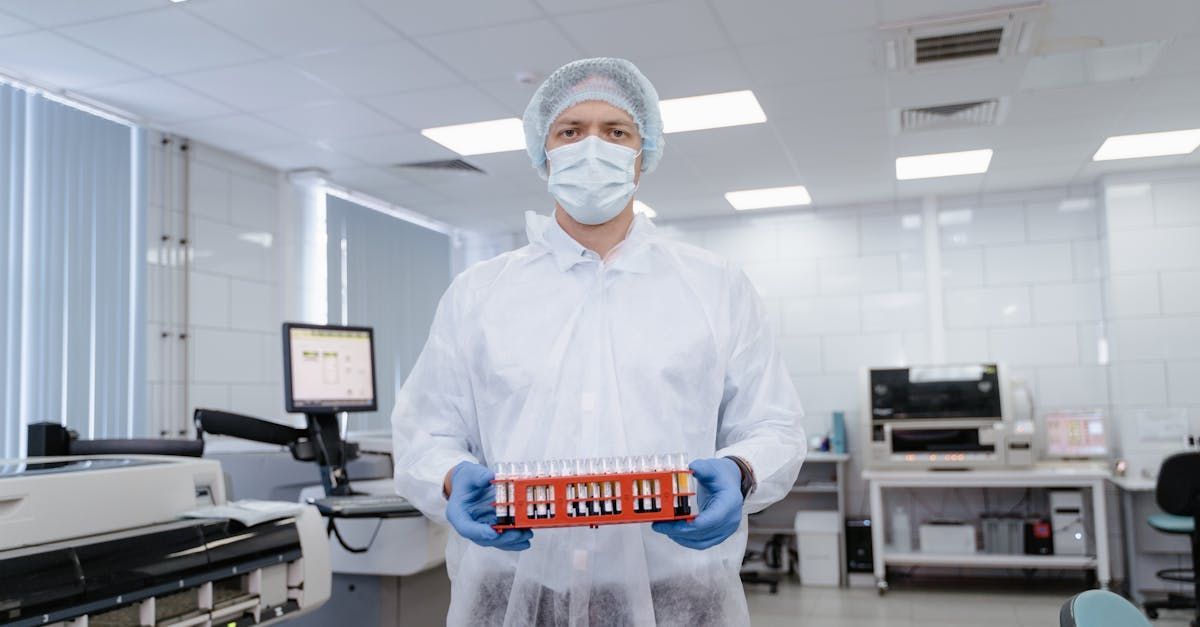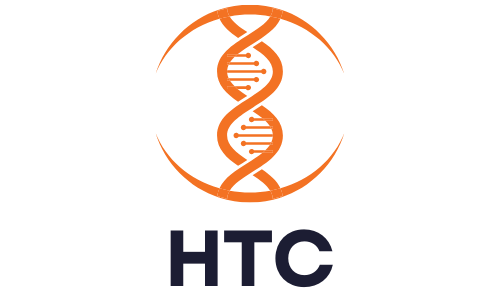The Role of AI in Predictive Healthcare
Predictive healthcare is an evolving field that holds immense potential to revolutionize the medical landscape. It involves using data, statistical algorithms, and machine learning techniques to identify the likelihood of future outcomes based on historical data. The goal is to predict and prevent health issues before they arise, enhancing patient outcomes and optimizing healthcare resources. At the heart of this transformation is artificial intelligence (AI), which is set to play a crucial role in predictive healthcare by providing unprecedented accuracy and efficiency.
The integration of AI into predictive healthcare offers numerous benefits, including improved diagnostic precision, personalized treatment plans, and proactive disease management. This blog aims to explore the role of AI in predictive healthcare, highlighting its applications, benefits, challenges, and future trends.
Understanding AI in Predictive Healthcare
AI in predictive healthcare refers to the use of machine learning algorithms, neural networks, and big data analytics to analyze vast amounts of health-related data. This analysis helps predict future health events, such as disease outbreaks, patient admissions, and individual health risks. AI models can process and learn from large datasets, identifying patterns and correlations that would be impossible for humans to discern.
The key components of AI in predictive healthcare include:
- Machine Learning: Algorithms that allow systems to learn from data and improve their performance over time without being explicitly programmed.
- Neural Networks: Computing systems inspired by the human brain's neural networks, capable of recognizing patterns and making complex predictions.
- Big Data Analytics: Techniques that involve processing and analyzing large and complex datasets to uncover hidden patterns, correlations, and insights.
AI is being applied in numerous ways to enhance predictive healthcare. For instance:
- Disease Prediction: AI models can predict the likelihood of diseases such as diabetes, heart disease, and cancer based on patient data, including genetic information, lifestyle factors, and medical history.
- Patient Monitoring: Wearable devices and IoT sensors collect real-time health data, which AI algorithms analyze to predict potential health issues and alert healthcare providers.
- Resource Allocation: AI can forecast hospital admissions and optimize resource allocation, ensuring that healthcare facilities are adequately staffed and equipped.
Benefits of AI in Predictive Healthcare
Improved Accuracy and Efficiency in Healthcare Predictions
AI-driven predictive models offer significantly higher accuracy than traditional statistical methods. They can process vast amounts of data quickly, providing real-time predictions that enable healthcare providers to make informed decisions. For example, AI can identify early signs of sepsis in hospitalized patients, allowing for timely intervention and potentially saving lives.
Enhanced Patient Care and Prevention Strategies
By predicting health issues before they become severe, AI enables proactive and preventive care. This shift from reactive to proactive healthcare can improve patient outcomes, reduce hospitalizations, and lower healthcare costs. Personalized treatment plans based on AI predictions ensure that patients receive the most effective and timely care.
Cost Savings and Resource Optimization
AI can help healthcare organizations optimize resources and reduce costs. Predictive analytics can forecast patient admissions, allowing hospitals to manage their workforce and resources more efficiently. Additionally, early detection and intervention can prevent costly treatments and reduce the overall burden on healthcare systems.
Notable Labs: Leading the Way in AI-Driven Predictive Healthcare
Notable Labs is at the forefront of leveraging artificial intelligence to revolutionize predictive healthcare. By integrating advanced AI and machine learning technologies, Notable Labs is pioneering innovative approaches to predict and prevent health issues before they become critical. Their commitment to evidence-based practices and cutting-edge technology supports the development of personalized treatment plans and proactive disease management strategies.
One of the key strengths of Notable Labs lies in their ability to harness vast amounts of data and transform it into actionable insights. Utilizing sophisticated algorithms and data analytics, they can analyze patient information at an unprecedented scale and speed. This capability allows for the identification of patterns and trends that might be invisible to traditional methods, thereby enabling early intervention and more precise treatments.
Notable Labs collaborates with healthcare providers and research institutions to ensure their AI models are continuously refined and validated. This collaboration ensures that the solutions they develop are both clinically relevant and scientifically robust. By working closely with these partners, Notable Labs is able to translate complex data into practical tools that healthcare professionals can use to enhance patient care.
Furthermore, Notable Labs is committed to making these advanced technologies accessible and affordable. They recognize that for AI-driven predictive healthcare to truly transform the medical landscape, it must be available to a broad spectrum of patients. To this end, they work diligently on developing scalable solutions that can be integrated into existing healthcare systems without prohibitive costs.
In addition to improving individual patient outcomes, Notable Labs’ work in predictive healthcare has significant implications for public health. By predicting outbreaks of diseases, understanding population health trends, and optimizing resource allocation, their technology can help mitigate the impact of health crises and improve overall community health.
Notable Labs also addresses the ethical and regulatory challenges associated with AI in healthcare. They ensure compliance with all relevant regulations and prioritize patient privacy and data security. Their transparent approach to AI development and implementation fosters trust and promotes the responsible use of technology in medicine.
As a leader in the field, Notable Labs exemplifies the transformative potential of AI in healthcare. Their innovative solutions are setting new standards for predictive healthcare, improving patient outcomes, and optimizing healthcare resources. By paving the way for a future where AI-driven predictive healthcare is the norm, Notable Labs is ensuring that each patient receives the most effective and individualized treatment possible.
In conclusion, the integration of AI into predictive healthcare represents a significant advancement in medical science. The ability to create personalized, timely, and efficient care tailored to individual patients’ needs promises to revolutionize patient care. Companies like Notable Labs are leading the charge in integrating these advanced technologies into standard healthcare practices, demonstrating the profound impact that AI can have on improving patient outcomes and making healthcare more efficient and effective.
Case Studies of AI in Predictive Healthcare
Several AI-driven predictive healthcare solutions have demonstrated significant impact:
- Google’s DeepMind and Eye Disease Prediction: DeepMind developed an AI system that can predict eye diseases such as age-related macular degeneration (AMD) and diabetic retinopathy with high accuracy. By analyzing retinal scans, the AI can identify early signs of these conditions, allowing for early intervention and better patient outcomes.
- IBM Watson for Oncology: IBM Watson uses AI to analyze patient data and medical literature to provide personalized treatment recommendations for cancer patients. This AI-driven approach has improved the accuracy of treatment plans and reduced the time required to develop them.
Examples of Successful Implementations and Their Impact
- Sepsis Prediction at Johns Hopkins: Johns Hopkins Hospital implemented an AI system to predict sepsis in patients. The system analyzes patient data in real-time, identifying early signs of sepsis and alerting healthcare providers. This early warning system has significantly reduced sepsis-related mortality rates.
- Predictive Analytics in Diabetes Management: AI-powered apps like Livongo use predictive analytics to help diabetic patients manage their condition. These apps analyze blood sugar levels, activity data, and other health metrics to provide personalized recommendations and alerts, improving patient adherence and outcomes.
These case studies highlight the importance of data quality, continuous learning, and collaboration between AI developers and healthcare providers. Successful implementation requires integrating AI seamlessly into clinical workflows and ensuring that healthcare professionals are trained to use these tools effectively.
Challenges and Risks
Despite the potential benefits, adopting AI in predictive healthcare comes with challenges:
- Data Privacy and Security: Handling sensitive patient data requires robust privacy and security measures. Ensuring compliance with regulations like HIPAA and GDPR is crucial.
- Bias and Fairness: AI models can inherit biases from training data, leading to unfair or inaccurate predictions. Addressing these biases is essential to ensure equitable healthcare.
- Integration with Existing Systems: Integrating AI solutions with existing healthcare infrastructure can be complex and requires significant investment.
Navigating the regulatory landscape for AI in healthcare can be challenging. Ensuring that AI systems comply with medical device regulations and obtain necessary approvals is essential. Continuous monitoring and validation of AI models are also required to maintain compliance.
To overcome these challenges, healthcare organizations should:
- Invest in Robust Data Security Measures: Implement strong encryption, access controls, and monitoring to protect patient data.
- Address Bias in AI Models: Use diverse and representative datasets for training AI models and continuously monitor for biases.
- Collaborate with Regulators: Work closely with regulatory bodies to ensure compliance and stay updated on evolving regulations.
Investment Opportunities in AI Predictive Healthcare
Investors should look for companies that demonstrate strong technical expertise, a clear value proposition, and successful implementation of AI in healthcare. Promising areas for investment include:
- Startups Focused on AI-Driven Diagnostics: Companies developing AI solutions for early disease detection and diagnosis.
- Wearable Technology Firms: Businesses creating wearable devices that collect and analyze health data for predictive insights.
- Telemedicine Platforms: Companies offering AI-powered telehealth services that enable remote monitoring and consultations.
When investing in AI predictive healthcare, consider:
- Regulatory Environment: Ensure that the company complies with relevant regulations and has a clear pathway for obtaining necessary approvals.
- Data Quality and Security: Evaluate the company’s data management practices and security measures.
- Scalability and Market Potential: Assess the scalability of the solution and its potential to address a significant market need.
Long-Term vs. Short-Term Investment Strategies
- Long-Term Investments: Focus on companies with a strong pipeline of innovative products and a clear vision for the future. These investments may require patience but can yield substantial returns.
- Short-Term Investments: Look for companies with proven solutions and immediate market demand. These investments may provide quicker returns but might be more susceptible to market fluctuations.
Future Trends and Innovations
The future of AI in predictive healthcare is promising, with several emerging trends:
- Integration with Genomics: Combining AI with genomic data to provide personalized healthcare predictions and treatments.
- AI-Driven Clinical Trials: Using AI to design and conduct more efficient and effective clinical trials.
- Real-Time Health Monitoring: Advancements in wearable technology and IoT devices enabling continuous health monitoring and real-time predictive insights.
The Impact of Technological Advancements on Predictive Healthcare
Technological advancements such as quantum computing, edge computing, and improved natural language processing (NLP) capabilities will further enhance AI’s role in predictive healthcare. These technologies will enable faster data processing, more accurate predictions, and better integration with healthcare systems.
Over the next decade, AI predictive healthcare is expected to become more mainstream, with widespread adoption across healthcare systems globally. We can anticipate:
- Increased Personalization: AI will enable highly personalized healthcare plans tailored to individual patients’ genetic makeup, lifestyle, and health history.
- Proactive Disease Management: Predictive models will become more accurate, allowing for earlier detection and proactive management of chronic diseases.
- Enhanced Collaboration: Greater collaboration between tech companies, healthcare providers, and regulatory bodies to ensure safe and effective implementation of AI in healthcare.
Conclusion
In conclusion, AI-driven predictive healthcare represents a transformative shift in the way we approach medical care. By harnessing the power of AI, we can predict and prevent health issues before they become critical, improving patient outcomes and optimizing healthcare resources. Despite the challenges, the potential benefits make investing in AI predictive healthcare a compelling opportunity.
Healthcare organizations, investors, and policymakers must work together to address the challenges and ensure that AI technologies are implemented safely and effectively. As we look to the future, the integration of AI in predictive healthcare promises to revolutionize patient care, making healthcare more proactive, personalized, and efficient. The journey of AI in predictive healthcare is just beginning, and the possibilities are endless. By supporting and investing in AI-driven solutions, we can pave the way for a healthier future for all.










